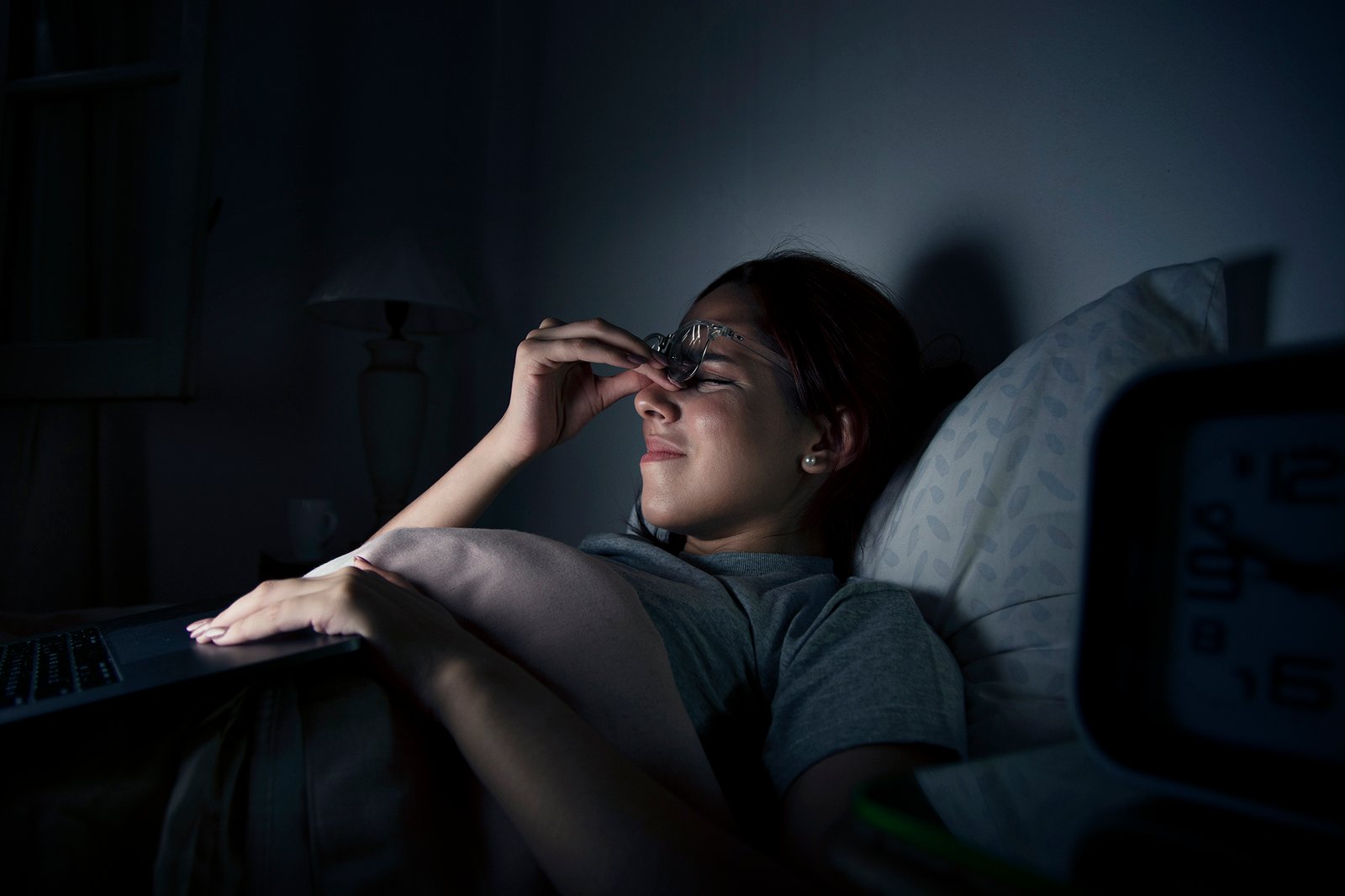Sleep disorders are conditions that disrupt a person’s ability to get restful sleep, impacting daily functioning, quality of life, and overall health. Over 100 types of sleep disorders exist, with varying symptoms and causes.
Common Types of Sleep Disorders
The most frequently recognized sleep disorders include:
- Insomnia: Difficulty falling or staying asleep, often accompanied by daytime fatigue and irritability.
- Sleep Apnea: Characterized by interrupted breathing during sleep, often due to airway blockages or respiratory issues, resulting in loud snoring and frequent waking.
- Narcolepsy: A neurological disorder where individuals experience sudden, uncontrollable episodes of sleep during the day.
- Restless Leg Syndrome (RLS): A condition where a person has an uncontrollable urge to move their legs, especially in the evening or during periods of rest.
- Periodic Limb Movement Disorder (PLMD): Repetitive movements of the limbs, particularly the legs, that occur during sleep and can disturb sleep quality.
Signs and Symptoms of Sleep Disorders
Different sleep disorders have unique symptoms. Common signs for some of the most prevalent conditions include:
- Insomnia:
- Racing thoughts or inability to quiet the mind at bedtime.
- Waking up during the night and struggling to fall back asleep.
- Daytime drowsiness, irritability, and concentration issues.
- Narcolepsy:
- Daytime sleepiness despite adequate nighttime sleep.
- Sudden, uncontrollable sleep episodes during activities like driving.
- Sleep Apnea:
- Loud snoring and gasping for breath during sleep.
- Morning headaches and daytime fatigue.
- Restless Leg Syndrome:
- Strong urge to move legs at night, often accompanied by aching or crawling sensations.
- Reports from others about kicking or moving limbs while asleep.
Treatment for Sleep Disorders
Treatments vary based on the type of sleep disorder. Medical and lifestyle changes can improve sleep quality and reduce symptoms.
Medical Treatments
- Medications: Melatonin supplements, sleep aids, or medications for underlying health issues.
- Devices: CPAP machines for sleep apnea to ensure continuous airflow during sleep.
- Other aids: Mouth guards for those with bruxism (teeth grinding).
Lifestyle Adjustments
- Diet: Increase vegetables and fish, reduce sugar intake, and avoid heavy meals before bed.
- Exercise: Regular activity can help reduce stress and improve sleep quality.
- Sleep Routine: Going to bed and waking up at the same time daily can establish a healthy sleep pattern.
- Reduce Stimulants: Limit caffeine and alcohol, particularly in the evening.
- Hydration: Reduce fluid intake before bed to avoid nighttime awakenings.
When to Seek Help
If sleep problems persist and begin to impact your daily life, consulting a healthcare provider is essential. Treatment can improve both sleep quality and overall well-being, supporting better daytime performance and health.
